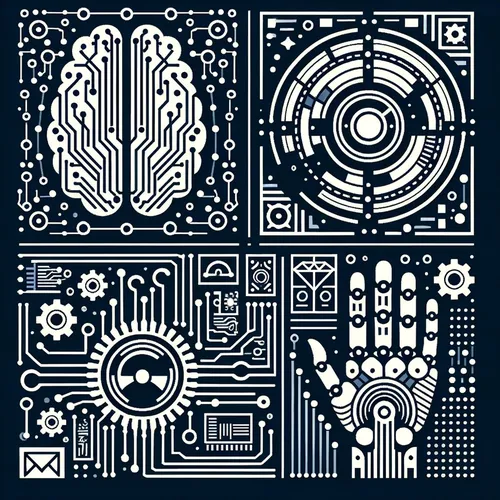AI Robots Steal Jobs & Hearts: Juicy Tech Gossip Unveiled!
- Author
- Quiet. Please
- Published
- Wed 02 Jul 2025
- Episode Link
- https://www.spreaker.com/episode/ai-robots-steal-jobs-hearts-juicy-tech-gossip-unveiled--66830103
This is you Emerging Technology Trends: AI, Robotics & Digital Innovation podcast.
The technology sector is experiencing rapid transformation as artificial intelligence, robotics, quantum computing, blockchain, and the internet of things converge to redefine industries and daily life. In 2025, breakthrough advances in artificial intelligence and robotics are at the forefront. The global artificial intelligence robot market is projected to soar from nearly 21 billion dollars in 2025 to over 149 billion dollars by 2032, reflecting an impressive 32 percent compound annual growth rate. This surge is fueled by demand for automation in manufacturing, automotive, and healthcare, alongside the rise of collaborative robots that can safely and intuitively work beside humans, expanding adoption even among small and medium businesses. Industrial robotics alone is expected to more than double in value by 2030 and will remain a bedrock for sectors prioritizing precision and efficiency.
Recent headlines spotlight two key developments. First, humanoid robots equipped with advanced generative artificial intelligence are stepping out of research labs and into logistics warehouses, autonomously handling parcels and performing labor-intensive tasks once reserved for humans. Second, geopolitical tensions are impacting semiconductor supply chains, prompting governments and companies to accelerate investments in artificial intelligence hardware, quantum computing, and blockchain-based security solutions to build technological resilience. Cross-industry innovation is accelerating as digital twin technology, enabled by real-time internet-of-things data, allows companies to simulate and optimize everything from manufacturing plants to smart cities.
Looking ahead, emerging fields like analytical and generative artificial intelligence will enable robots to process massive datasets, self-optimize, and adapt to unpredictable environments in real time. The widespread use of collaborative robots—cobots—is improving workplace safety and flexibility, while artificial intelligence-powered predictive maintenance is minimizing downtime and extending equipment lifespan. Investors are targeting companies at the intersection of artificial intelligence, hardware, and automation, with market leaders in robotics, chipmaking, and cloud infrastructure poised for outsized influence.
Yet, these advancements are not without challenges. Regulatory bodies are grappling with ethical concerns surrounding artificial intelligence decision-making, data privacy, and potential job displacement. The future of work depends on proactive upskilling programs and the responsible integration of technology. For business leaders, the practical takeaway is clear: invest in ethical artificial intelligence, prioritize flexible automation, and create pathways for workforce adaptation. In this era, those who blend digital innovation with human-centric strategy will shape the landscape of tomorrow’s economy.
For more http://www.quietplease.ai
Get the best deals https://amzn.to/3ODvOta
